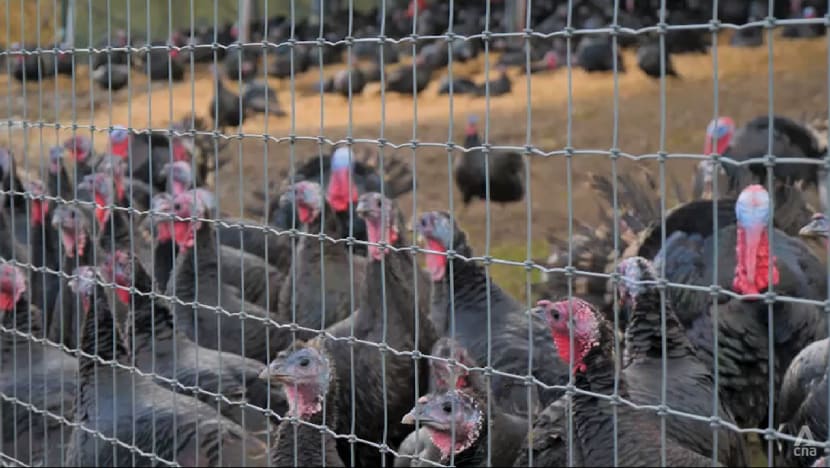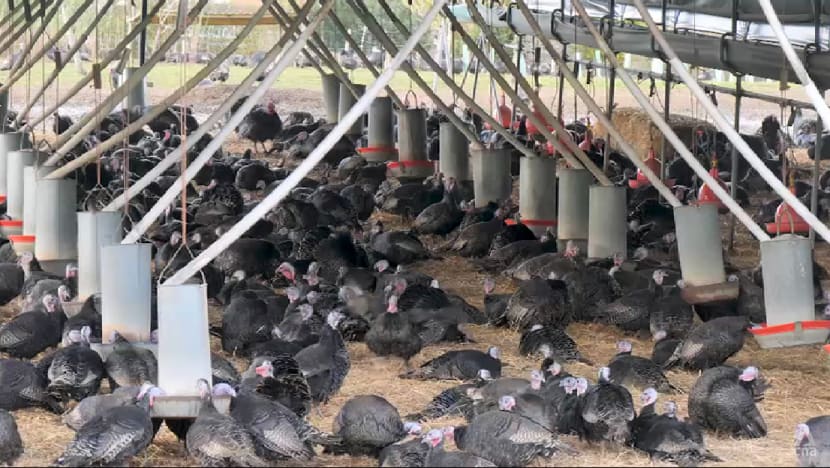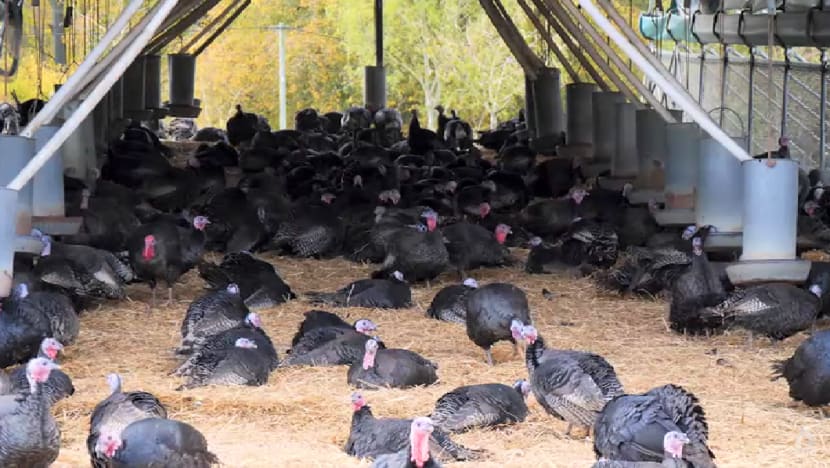UK turkey farmers optimistic about fulfilling Christmas orders this year after 2022 bird flu
While the disease is still present, the immunity in Europe's wild bird population has increased and impact this year has not been as bad.

Turkey farmers in Britain are optimistic about fulfilling Christmas demand this year, after enduring a devastating 2022 which saw half the free-range flock killed by bird flu.

This audio is generated by an AI tool.
COOKHAM, England: Turkey farmers in Britain are optimistic about fulfilling Christmas demand this year, after enduring a devastating 2022 which saw half the free-range flock killed by bird flu.
Last year, a new strain of bird flu tore through the farmed and wild turkey population, killing hundreds of thousands of turkeys.
While the disease, known as H5N1, is still present, the immunity in Europe's wild bird population has since increased.
TURKEY SHORTAGES BEFORE CHRISTMAS LAST YEAR
In autumn last year, the disease was found across the country, devastating the domestic turkey market and creating crippling shortages right before Christmas.
At Copas Traditional Turkeys, turkeys only narrowly avoided that fate.
“We were incredibly lucky that we actually had no bird flu anywhere near us and the heatmaps afterwards for this part of the country had a completely clear spot, which is amazing,” said the firm’s managing director Tom Copas.
“It was incredibly fortunate to have that, even though we were seeing bird flu just popping up from one part of the country to the next part of the country.”
Then, farms had put their turkeys in lockdown to mitigate the risk.

Biosecurity measures were enhanced to prevent cross-contamination between farms. Staff were limited to one site, public footpaths were diverted, and equipment was kept to one farm.
The birds were also slaughtered earlier than usual to avoid the risk of bird flu hitting the flock closer to Christmas, with the meat then stored in costly industrial chillers.
While many of the biosecurity measures implemented during the 2022 outbreak continue, the turkeys are now given the freedom to roam.
“Turkeys do well when they're free ranging,” said Mr Copas. “They have a lovely time outside. They like to roam and explore and chat. So that's when we have a healthy (and) happy turkey.”
However, the farm’s staff remain vigilant, knowing that the threat could appear any time. By Christmas, all the birds would have been sent to the abattoir.
DEVELOPING A NEW VACCINE
Other poultry farms, however, do not have that luxury, with a constant cycle of rearing and slaughter requiring endless oversight and protection throughout the year.
Once the virus is discovered circulating in a flock, birds cannot be placed on the same site for 12 months, jeopardising two years’ worth of business.
While turkey farms can take practical measures to protect their flock, farmers hope vaccine research may be the answer to their annual problem.
The UK’s Animal and Plant Health Agency is working with international partners to develop a new vaccine.

“You want a vaccine that is very effective, that stops infection or at least reduces infection, and basically interrupts the virus spreading from one bird to another,” said Professor Ian Brown, director of scientific services at the agency.
“So we are doing work to enable matching of global strains in use in vaccines to the currently circulating field viruses.”
But there are high costs involved, not just for developing the right vaccine, said observers.
“The international standards set down for this are very prescriptive. They require monthly checking, lots of testing and it's all very costly,” said Prof Brown.
“I suspect more countries in Europe will start vaccinating. Of course, vaccination has been used for some time in Asia to control this infection and will continue to do so, because, of course, at the moment this is somewhat out of control with many countries now infected with this virus.”
















